- Home
- Paul Christopher
The Lucifer Gospel fr-2 Page 9
The Lucifer Gospel fr-2 Read online
Page 9
“Crazy things,” Hilts said and nodded, checking his instruments. “The friction of the sand causes the lightning. All sorts of magnetic disturbances as well.”
“Down there, you flew right at that helicopter. You didn’t turn.”
“This thing flies like stink, but it takes a lot to turn, and anyway, the Mil-24 was probably the least maneuverable chopper the Russians ever made. Fly at it and it has to swing around in a big circle. I knew we had the throttle to get up and over.”
“Knew?”
“Hoped.” Hilts grinned.
“Think elevating thoughts? That was the best you could come up with?”
“Better than kiss your ass good-bye,” said Hilts. “Which was the only other alternative.”
“What about the helicopter? Will they come after us?”
“No. They didn’t have enough time to get the elevation. That Nasif guy’s going to have to ride it out on the ground. Even then he might have to radio for help to get restarted.”
“So now what do we do? We can’t go back to the dig.”
“There’s an old oil airfield at Ayn al Ghazal. We can fuel up there and get across the border into Egypt.”
“And after that?”
“We’ll have to give that some thought. Cairo. The embassy. New passports. Maybe talk to your pal Mickey Hearts.”
“Or see if we can find out what Pedrazzi was up to.”
“Should have brought one of those copper urns with you,” said Hilts.
“I was distracted,” Finn answered. She dug into the pocket of her jacket and pulled out the old flat cigarette tin with the lounging woman on the lid. “All we’ve got is this.”
“And neither one of us smokes,” Hilts said. “Darn.” They were flying due east now, toward the distant border, away from the sandstorm and the threat of Nasif and his helicopter.
Finn shook the tin but there was no sound. For an empty tin it seemed heavy. Curious, she pried open the lid and was surprised to see a wadded piece of dusty linen inside. Hilts glanced across the narrow cockpit.
“Got something?”
“I’m not sure,” she said. “It looks like a handkerchief.”
“I’m taking us down under the radar,” said Hilts, gently easing the control stick forward. The plane responded instantly, swooping down toward the desert. “Wouldn’t want our friend calling in the cavalry on us.”
Finn unwrapped the cloth. There was a monogram in one corner, two letters entwined beneath a crest. “L.P. Lucio Pedrazzi. The crest is the same as the ring he was wearing.”
“He didn’t get that hole in the side of his head from a scorpion bite,” said Hilts. “A handgun from close range, more likely.”
“Murdered?”
“At a guess, yeah.”
“But according to you the only person with him was…”
“Pierre DeVaux, a monk,” Hilts completed.
“A monk with a pistol?”
“Agatha Christie would have loved it.”
Finn finished unwrapping the handkerchief. In the center of the fabric square a gold medallion gleamed. Staring up at Finn was the embossed malevolent face of a frowning Medusa, lips snarling, hair a mass of writhing snakes.
“A coin?” asked Hilts, looking at the object in her palm.
“A medallion.”
“What does it have written around the head?”
“The inscription is the same as the one of the stone coffin,” she said. “Hic Latito Lux Excito-Vox Luciferus. Here Lies Hidden the Bringer of Light: The Words of Lucifer.”
She turned the golden disk over. Engraved on the other side was the profile of a handsome face and another inscription.
“What does it say?”
“Legio III Africanus-Domus in Venosa est. Third African Legion, whose home is in Venosa,” she translated.
Hilts’s brow furrowed. “Where’s Venosa?”
17
Venosa is a town of some twelve thousand citizens scattered around a volcanic hilltop in the district of Basilicata, a small, out-of-the-way regione that lies roughly in the arch of Italy’s boot, bounded by the Gulf of Taranto to the south and the marble spine of the Apennine Mountains to the north. The architecture is bland, whitewashed stucco competing with beige stone and dusty, red-tiled roofs. Few tourists go there; it has none of the flavors of Tuscany or the grandeur of Rome, but once, a long time ago and under another name, it was one of the assembly points along the Appian Way for the great legions of Rome as they went out to conquer the world. Today it has a number of relatively unimportant churches, several sets of catacombs, a fort, and one good restaurant, Il Grifo, located in the center of town, just off the small central square.
Finn parked the little blue Fiat Panda in the cramped town square and switched off the engine. The only difference between the square and a utilitarian cobblestone parking lot was a medium-sized statue of an old Roman in a toga with a scroll in one hand and wearing an olive wreath on his half-bald head. Presumably this was the town’s best-known famous son, Quintus Horatius Flaccus, better known in literary history as the poet Horace. Finn was the one behind the wheel because she spoke the language fluently, having spent a year in Florence gathering research for her master’s thesis on the drawings of Michelangelo. It was also a practical way of dealing with the relentlessly chauvinistic polizia on the highways, who were always willing to give a pretty red-haired tourist a break; especially one who could say per favore and grazie with such a charming accent.
Finn popped open the door of the miniscule little vehicle.
“Stay here,” she instructed.
“Why?” asked Hilts, undoing his seat belt.
“In this country a woman asking questions by herself works better than if she’s with someone,” Finn answered. “Italian men are all the same-they think they were born to please women and that we’re all damsels in distress and desperate for a man’s attention. You’d be competition, at least in their minds.”
“What if it’s an old guy?”
“Even better,” she said and grinned. “Something to prove.”
“What if he’s gay?”
“He’d still want to pinch me, just to keep up the national honor.”
“Doesn’t say much for the feminist cause.”
She laughed. “There’s the feminist cause and then there’s Italy.”
Finn climbed out of the car and crossed the claustrophobic little square. She entered the local Municipio, or City Hall, a square, crumbling stone building with an entrance like a missing tooth and no distinguishing architectural features of any kind. Hilts settled back in his seat and picked up the guidebook they’d bought twelve miles back at a gas station in Rapolla.
According to the book the town had been called Venusia a couple of thousand years ago, named after the Roman goddess of beauty. These days the most important thing in town was the tomb of the wife of Robert Guiscard, the man who conquered Sicily, the reason the Mafia was invented in the first place and the origin of the word “wise-acre.” As far as Hilts could tell there was nothing here to connect with Lucio Pedrazzi and a cave full of late-model mummies in the Libyan Desert. On the other hand, it was the only clue they had.
Five minutes later Finn reappeared and got back into the car.
“So?” asked Hilts.
“Believe it or not, his name was Alberto Pacino and he insisted on doing bad imitations from Scarface in an Italian accent.”
“So other than saying hello to his little friend, did you find out anything?”
“I didn’t say hello to his little friend, but I found out who the resident history guy is in the town. His name is Signore Abramo Vergadora. He’s a retired professor and he lives in a place called Villa Embreo Errante, a few miles north.
“Embreo Errante?”
“The Wandering Jew,” translated Finn.
18
Signore Vergadora’s villa was located in a pleasant shaded valley between two of the seemingly endless number of rocky hills tha
t rose throughout the area like overgrown piles of discarded dirt thrown up by some gigantic dog searching for an old buried bone. Unlike most of the valleys they’d driven through, this one actually seemed capable of growing something. The villa was located in an olive grove, and off to one side a brook meandered pleasantly through the trees. The villa itself was reasonably modest and very old, yellowed stucco peeling away from ancient stone, the deep windows covered with wrought-iron gratings, the roof dusty red with terra-cotta tiles, a central tower in front standing guard above the rest of the sprawling building.
Finn parked in front of the main door, and she and Hilts climbed out of the car and into the bright, warm sunlight. Finn could hear the brook now, babbling quietly to itself, and the afternoon breeze rustling through the poplars that stood around the house like sentries, much taller than the gnarled grove of olives that might have been here as long as the house, perhaps centuries.
They stood in front of the heavy planked front door and Finn pulled the bell chain. From somewhere deep inside the villa there was a faint tinkling sound and then the shuffle of approaching feet. A moment later the door creaked open and a face appeared: an Italian J.R.R. Tolkien wearing a yarmulke pinned to unruly silver hair, drooping bags beneath twinkling eyes, and rosy cheeks forced down by time and gravity on either side of an almost feminine mouth that looked as though it rarely frowned. The man had bright red reading glasses perched on his forehead and wore a brown corduroy suit much too warm for the summer, complete with vest, white shirt and tie, the vest decorated with a fob and chain that spanned a moderate belly. He wore purple velvet bedroom slippers.
“Ah,” he said happily, “you are the American couple.”
“How’d you know that?” Hilts asked.
“Alberto called me from the Municipio,” the old man answered, still smiling. “That one thinks every American is a Hollywood producer looking for new stars.” He stepped aside and gestured them forward. “Come in, please. My name is Abramo Vergadora.”
Vergadora took them through several high-ceilinged underfurnished rooms, finally ushering them into what was obviously his sanctum sanctorum, a library, the walls lined with overflowing bookshelves, the stone floor covered with overlapping Persian carpets. The room was laid out with a dozen chairs and couches, with more tables and chairs piled high with books and more stacks on the floor. The whole room smelled of paper, leather, cigar smoke and ash from the gigantic fireplace that stood in the corner. Finn stopped. Carved into the mantel of the fireplace was the same coat of arms she’d seen on Pedrazzi’s ring and on the corner of the ancient handkerchief that had been wrapped around the gold medallion.
“That’s the arms of the Pedrazzi family,” she said.
Vergadora looked at her curiously.
“No, it’s not,” he said. “But it is extraordinary that you should know it at all.”
“It is the coat of arms Lucio Pedrazzi used,” she insisted.
“True, but not one that the Pedrazzi family had any right to,” Vergadora replied quietly. “But before we get into any further discussions, perhaps I can offer you coffee, or tea? Lemonade? A soft drink? I only drink Dr Pepper, I’m afraid.” The old man’s smile widened even more. “Or perhaps something stronger. A martini? Brandy Alexander? They are the only two American drinks I know how to make, and sadly I am without domestic help with the exception of the old woman who does my laundry on Thursdays.”
“Coffee would be nice,” said Finn.
“Sure,” said Hilts with a nod.
“Wonderful.” Vergadora beamed. He turned and scuttled away, his bedroom slippers whispering into the distance.
“He’s a nut bar,” said Hilts. “A nice nut bar, but a nut bar nevertheless.”
“I prefer the word ‘eccentric,’ ” Finn said and smiled. She began wandering along the rows of books.
“He’s got everything here from Dante’s Inferno to The Stand by Stephen King.”
“Not such a leap when you think about it,” Hilts said, dropping down into one of the comfortable leather armchairs. He watched Finn continue her inspection of the bookshelves. “What do you think about the Pedrazzi thing?”
“I can’t wait to hear his explanation,” said Finn.
“He’s Jewish,” mused Hilts. “That’s a bit strange.”
“The villa’s called the Wandering Jew. Historically there’ve been Jews in Italy for thousands of years.”
“Not something you hear about much.”
“Fiorello La Guardia was an Italian Jew. Modigliani, the sculptor, was a Jew. I think the guy who invented the Olivetti typewriter was Jewish.”
“He was. His name was Camilo Olivetti.” Vergadora came back into the room carrying a tray. In addition to the coffee there was a single budding rose in a slim, porcelain vase. He set the tray down on a table.
“I knew his son, Adriano, quite well,” the old man continued. “We spent the war in Lausanne together pretending to be exiles. If he hadn’t been so wealthy he would have been a communist, I’m positive.”
He paused, his smile wistful. “Did you know they are the only company that still manufactures manual typewriters? I find that a comfort in a world where people have things called BlackBerries instead of address books and computers are named after fruit.” He smiled at Finn. “Cream? Sugar?”
“Black,” she said.
“Both,” said Hilts.
Vergadora poured, then handed the cups around as Finn took a seat across the table from him.
“Tell me about Pedrazzi and the coat of arms,” said Finn.
“Tell me why you wish to know,” Vergadora replied.
Hilts answered. “A few days ago we found his dried-up corpse in a cave in the Libyan Desert. Someone had shot him in the head.”
“How wonderful,” the old man said and beamed again. “An end devoutly to be wished. He was truly an evil man.” He took a sip of coffee and squinted at the rose. He adjusted the single stalk fractionally. “Did you find the remains of that busone DeVaux, as well?”
“No, Pedrazzi’s body had been hidden away in an old ossuary,” said Finn. “The only other remains were some British soldiers from years later.”
“Pity. As a rabbi I’m supposed to be above that sort of thinking, but sometimes I just can’t help thinking that some people should have been strangled at birth, Pierre DeVaux being very high on my list.”
“You still haven’t explained about the coat of arms,” Finn prodded.
“What were you doing in the middle of the Libyan Desert?”
“Do you always answer questions by asking them?” asked Hilts.
“It’s a rabbinical thing, a bad habit, but useful.” Vergadora offered up one of his gentle smiles. “It gives an old man time to think. I’m not quite as sharp as you young people.”
“Yeah, right.”
“The coat of arms?” insisted Finn.
“Three hands holding crescents, three palm trees, and a lion rampant. Nothing particularly Hebraic about that in Pedrazzi’s limited brain except that the duchy of Lorro, which was centered roughly where the olive grove is outside my door, used to belong to my family, the Duca di Levi Vergadora Ibn Lorro being the original holder of the title granted by the Lombard kings in the twelfth century. If Pedrazzi had done his research he would have realized that crescents, palms, and open hands were all indicators of the Jewish faith in heraldry. I was the last duke of Lorro, not that Italian titles meant much by then in any real sense, but in 1938 Mussolini decided to follow Hitler’s path and Jews became persona non grata for a time. I was living outside of Italy by then, but in absentia they stripped me of the title, this house, and what land was left. It was given to Pedrazzi as a gift by Il Duce himself. Pedrazzi took his dukedom very seriously; he had the crest put on everything.”
“You went to Switzerland, Lausanne,” offered Finn.
“And then America after the war, then Canada, then Israel for a time. But I am as much Italian as I am a Jew, and I became homesick. I hea
rd that the villa was for sale and I purchased what had once been mine. Pedrazzi had named it for himself, but I erased that as well.”
“The Wandering Jew comes home,” Hilts said and grinned.
“Something like that.” Vergadora nodded. He finished his coffee and set the cup back on the tray. He sat back in his chair, dug into his pocket for an old briar pipe, and lit it using a kitchen match he took from the other pocket and struck with his thumbnail. The old man puffed, the pipe sucking with a noisy gurgle. He looked more like Tolkien than ever. “So,” he said, once the pipe was fuming and sending up clouds of aromatic smoke toward the nicotine-colored ceiling. “You seemed surprised to see my family crest over the fireplace, ergo, that is not the reason you came here. Since you are American and have recently been in the Libyan Desert, I can only presume that you were part of that buffoon Rolf Adamson’s so-called archaeological expedition that has been so much in the news of late. Yes?”
“So-called?” said Finn.
“Rolf Adamson has the somewhat limited archaeological credentials of a man digging a cesspool in his back garden.”
“I can see you don’t mind sharing your opinions,” Hilts said with a laugh.
“Archaeology is serious business, young man,” said Vergadora, using the stem of his pipe to emphasize the point. “As somebody once said, the blueprint of the past often provides a road map for the future.”
“If you don’t know where you’ve been, how can you know where you’re going?” Hilts responded.
It was the old man’s turn to laugh.
“He who forgets the past is doomed to repeat it.”
“How about this one-‘Archaeology is the search for fact… not truth. If it’s truth you’re looking for, Dr. Tyree’s philosophy class is right down the hall,’ ” Hilts quoted.
“Now you’re making fun of me,” puffed Vergadora, laughing even harder.
“You’re both crazy,” said Finn. She reached into her pocket, took out the old cigarette tin, and slid it across the table toward the white-haired old man. He looked at the picture of the woman on the lid for a moment, then popped open the tin. Pedrazzi’s old handkerchief had been replaced by a square of cotton batten from a drugstore. Vergadora stared at the gleaming medallion, then carefully turned it over and looked at the obverse side.

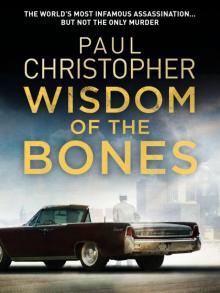 Wisdom of the Bones
Wisdom of the Bones The House of Special Purpose
The House of Special Purpose The Second Assassin
The Second Assassin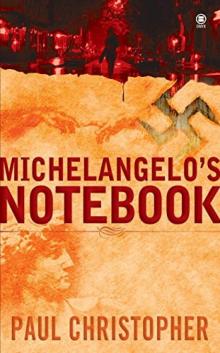 Michelangelo's Notebook
Michelangelo's Notebook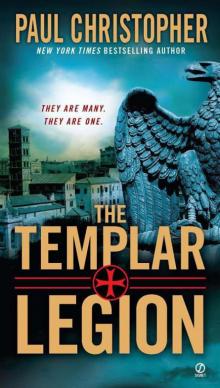 Templar Legion
Templar Legion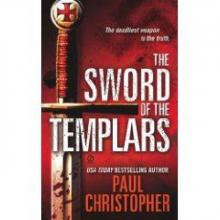 The Sword of the Templars t-1
The Sword of the Templars t-1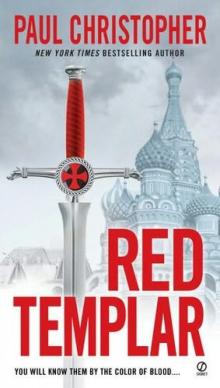 Red Templar
Red Templar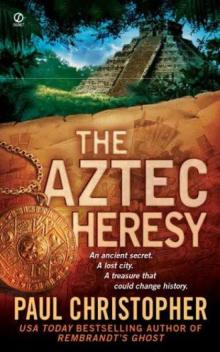 The Aztec Heresy
The Aztec Heresy The Templar Legion
The Templar Legion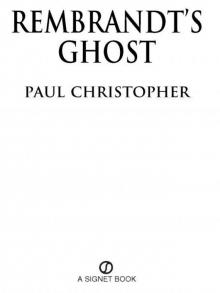 Rembrandt's Ghost
Rembrandt's Ghost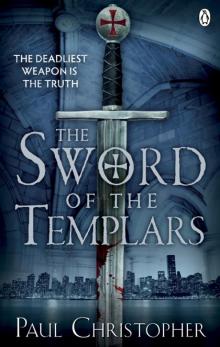 Sword of the Templars
Sword of the Templars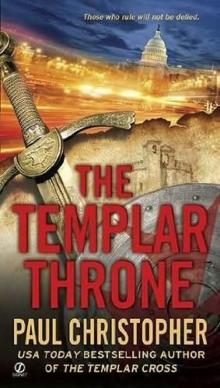 The Templar throne t-3
The Templar throne t-3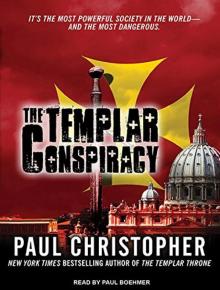 The Templar Conspiracy
The Templar Conspiracy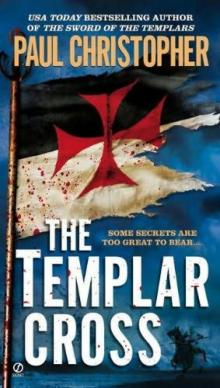 The Templar Cross t-2
The Templar Cross t-2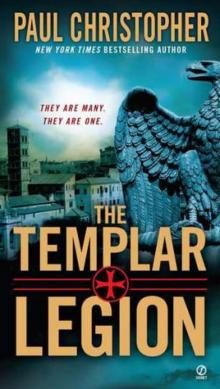 The Templar Legion t-5
The Templar Legion t-5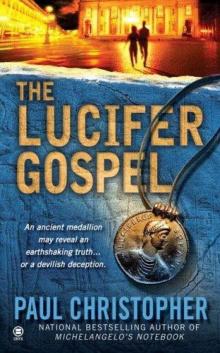 The Lucifer Gospel
The Lucifer Gospel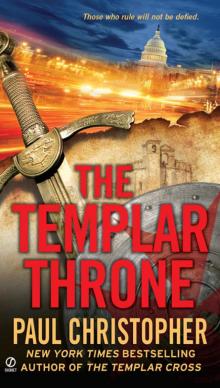 Templar Throne
Templar Throne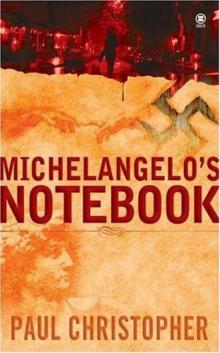 Michelangelo_s Notebook fr-1
Michelangelo_s Notebook fr-1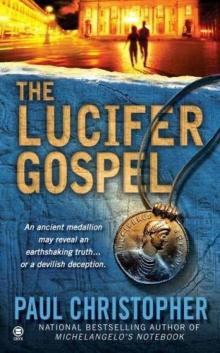 The Lucifer Gospel fr-2
The Lucifer Gospel fr-2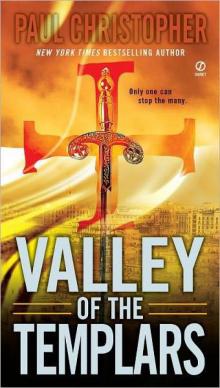 Valley of the Templars ts-7
Valley of the Templars ts-7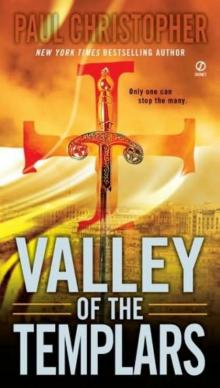 Valley of the Templars
Valley of the Templars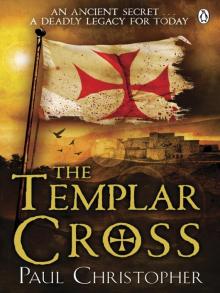 Templar Cross
Templar Cross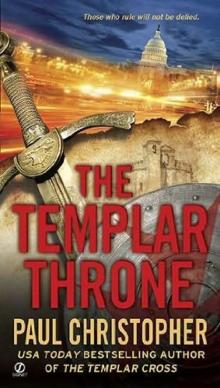 The Templar Throne
The Templar Throne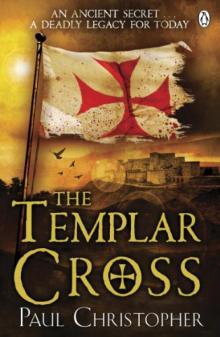 The Templar Cross
The Templar Cross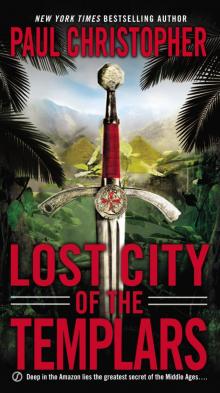 Lost City of the Templars
Lost City of the Templars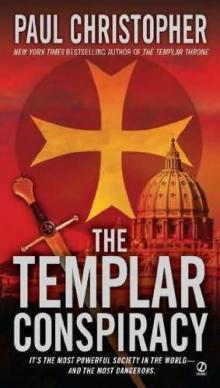 The Templar conspiracy t-4
The Templar conspiracy t-4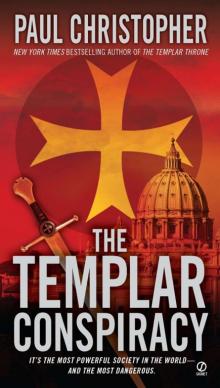 Templar Conspiracy
Templar Conspiracy